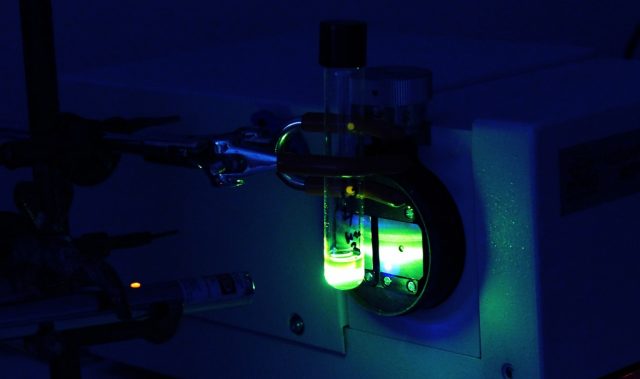
AsianScientist (Jan. 9, 2018) – In a study published in the journal Cell Reports, a team of scientists in Japan have reported how the activity of an enzyme produced in response to oxidative stress is involved in cancer. Their findings could lead to the discovery of potential targets for the treatment of the malignancy.
Oxidative stress in tissues and organs occurs when the body is subjected to environmental insults such as infections and toxins. The production of free radicals of oxygen during oxidative stress can cause harm to DNA and other proteins inside biological cells, leading to disease.
An enzyme known as apoptosis signal-regulating kinase 1 (ASK1) is normally activated in the body by oxidative stress, but how it is regulated remains unclear. Irregular ASK1 activation is linked to some cancers, as well as inflammatory and neurodegenerative diseases.
In this study, scientists at Tohoku University used gene silencing techniques and cell culture studies to investigate how molecules regulate ASK1. Another enzyme called protein arginine methyltransferase 1 (PRMT1) is known to encourage ASK1 to interact with a small protein called thioredoxin (Trx). This interaction effectively turns ASK1 off, interfering with this enzyme’s role in initiating a cell-signaling process that ultimately leads to cell death and inflammation.
The researchers found that a protein called tripartite motif 48 (TRIM48) starts a process that labels PRMT1 for destruction inside cells. The loss of PRMT1 means that ASK1 and Trx do not interact, and ASK1 remains active under conditions of oxidative stress.
Conversely, when the researchers turned off the gene that codes for TRIM48, PRMT1 persists, promoting interaction between ASK1 and Trx, hence ASK1 is turned off and no longer activated by oxidative stress.
“PRMT1 upregulation may be caused by decreased TRIM48 expression or activity, leading to cancer development and progression,” the researchers said. “Future studies should determine whether TRIM48 suppresses cancer development and progression through PRMT1 downregulation.”
They also suggested that the pathways involved in regulating ASK1 activation could act as therapeutic targets in the treatment of ASK1-related diseases, which include cancers and neurodegenerative diseases.
The article can be found at: Hirata et al. (2017) TRIM48 Promotes ASK1 Activation and Cell Death through Ubiquitination-Dependent Degradation of the ASK1-Negative Regulator PRMT1.
———
Source: Tohoku University; Photo: Shutterstock.
Disclaimer: This article does not necessarily reflect the views of AsianScientist or its staff.












